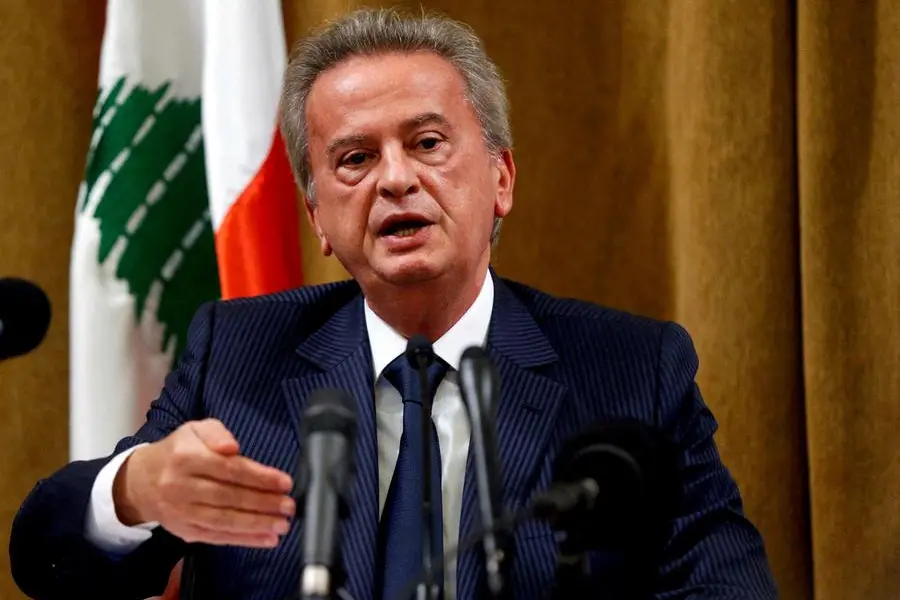PHOTO
BEIRUT - Lebanon's central bank governor on Friday told European officials that public funds were not transferred to a company owned by his brother and said no money from the institution entered his own personal account.
Salameh, 72, is being investigated alongside his brother Raja in Lebanon and in at least five European countries over accusations of stealing hundreds of millions of dollars over more than a decade and laundering some of the proceeds abroad.
The brothers deny wrongdoing. Salameh says the accusations are part of an attempt to scapegoat him for Lebanon's financial meltdown.
Lebanon has charged them in two cases but European officials have yet to announces charges.
Salameh was interrogated in hearings on Thursday and Friday by a Lebanese judge relaying nearly 200 questions submitted by French and German officials, a senior judicial source said.
He described Friday's hearing as "good" to Reuters.
In a later statement, he said that at the session he had reiterated evidence and documents submitted to the judiciary in Lebanon and abroad and offered a detailed explanation of them.
Those documents showed that "no money from the central bank" had entered the account of Forry Associates, a firm owned by his brother, the statement said.
European prosecutors suspect the central bank collected commissions as a fee from bond buyers and then transferred the funds to Forry.
Swiss authorities suspect the Salameh brothers may have illegally taken more than $300 million in this way from BDL, laundering some of the money in Switzerland, according to a letter sent by Swiss authorities to Lebanese authorities last year and seen by Reuters.
Salameh's statement on Friday also said his personal account at the central bank was "not linked" to accounts at the institution where deposits were being made and that "no money from the central bank was transferred into my account".
Salameh for decades enjoyed strong backing from Lebanese elites as he financed a state rife with corruption and enforced policies that earned commercial banks massive profits.
But he has faced increased scrutiny since a 2019 financial crisis resulting from decades of profligate spending, corruption and unsustainable policies by Lebanon's leaders.
As the Lebanese and European probes converge, some of his long-time allies have moved to distance themselves from him, according to political sources who declined to be identified.
His latest six-year term ends in July and he says he is not interested in staying on - bringing an end to a 30-year tenure that saw him work hand-in-glove with Lebanon's political elite.
No clear successor has emerged, raising the possibility that the central bank's vice governor could take over.
(Reporting by Laila Bassam and Timour Azhari; Writing by Maya Gebeily, Editing by Angus MacSwan)





















